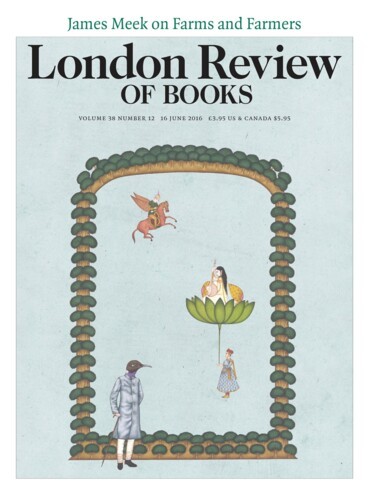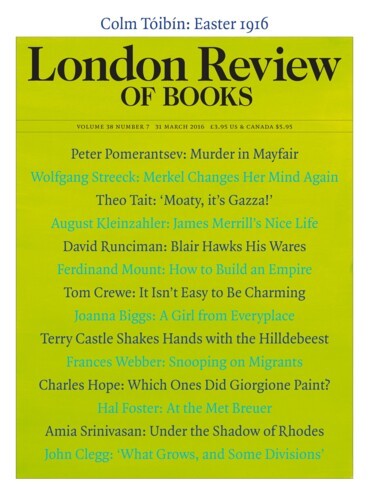Diary: European Schools
Peter Pomerantsev, 16 June 2016
Educated side by side, the children of the European School played up to caricatures of their homelands. The French were moody: the boys read graphic novels and the girls wore Chanel. The Italians were appalled by the food and seemed to take badly to multilingualism. The Germans were the jocks. We in the English section, the boys anyway, posed as eccentrics: we quoted Monty Python and made a point of eating Marmite. It’s said of Boris Johnson that he elaborated his cartoon Englishness at Eton, but the groundwork would have been laid at his European School.



